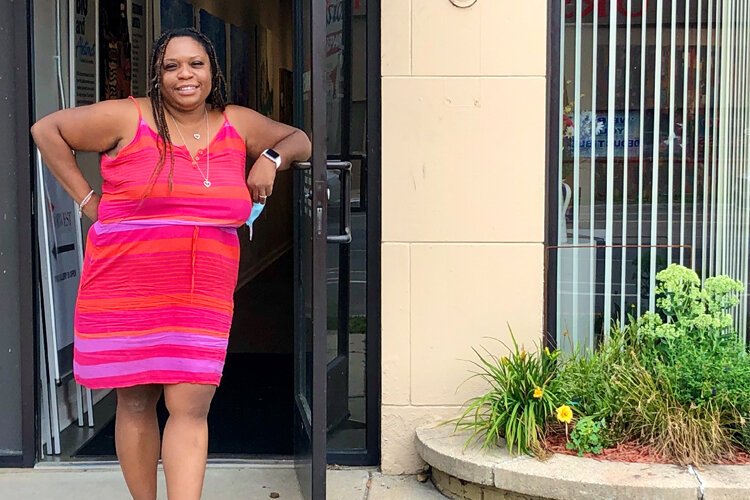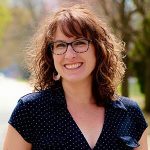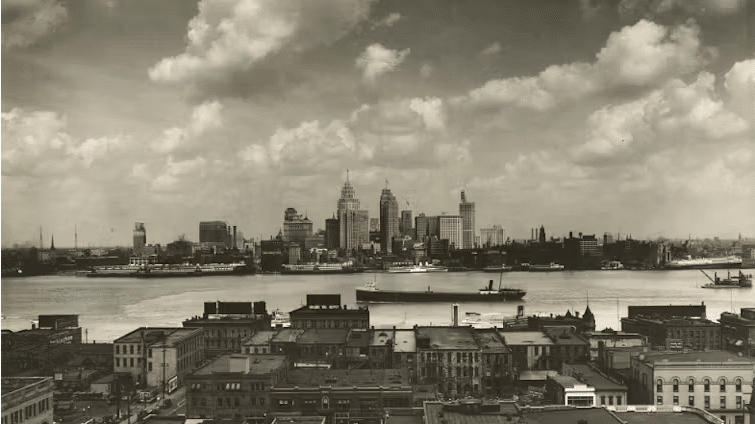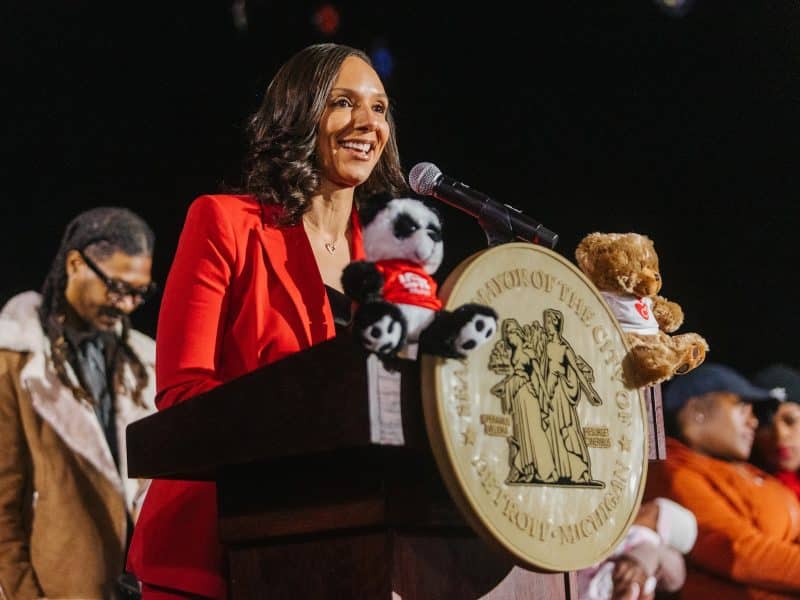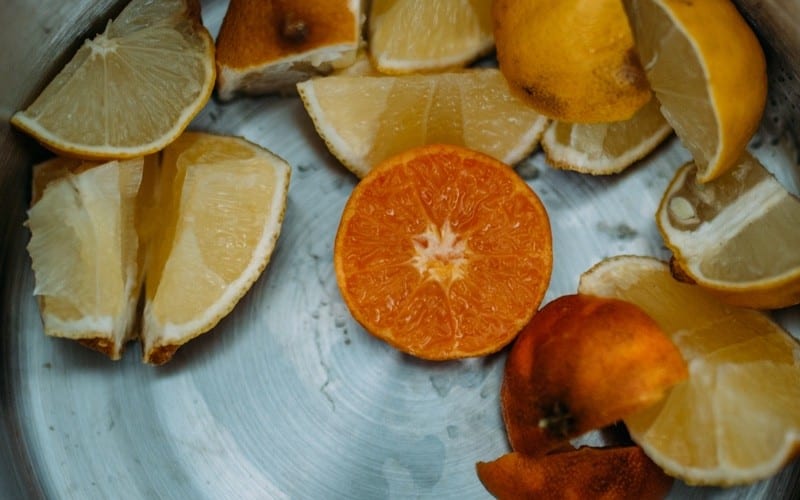Q&A with Asia Hamilton, owner of Norwest Gallery, on why Detroit needs art more than ever
"A lot of art spaces aren’t welcoming spaces. It’s such a prestigious, bougie industry that you can feel like you don’t belong. I want people to experience high-end, fabulous art, to come in and feel like they're supposed to be there. That’s why I opened up this space."
The scene was BIG and ABSTRACT on opening night, July 31, at Grandmont Rosedale’s Norwest Gallery. After all, what could be a more fabulous way to saturate blank walls and welcome folks back, says photographer, owner, and chief curator Asia Hamilton. Opened in 2018, the gallery is dedicated to African and African-American contemporary art. Model D sat down with Hamilton to talk about her fight to reopen during COVID-19, being a Black artist in the business, and why she wanted to build an inclusive arts space.
Model D: Tell me about last night’s opening. What was the energy like in your first crowd back? (the gallery is limiting guests to small groups, per Gov. Gretchen Whitmer’s order)
Asia Hamilton: You know when people came here yesterday, they were like little kids.They were excited and having a good time. I usually have wine and snacks for people but now, they didn’t care, and I was like, good I’m never doing that again, (laughing) I’ll save my money. They just enjoyed the art. They stood in front of pieces and chatted, and just marveled.
People were like, ‘Oh, look at this! This is beautiful.’ (Hamilton points to a wood sculpture by local artist Doug Cannell.) And, “Oh, I’d love to have this on my table.” That’s how it’s supposed to be. Art’s supposed to give you a feeling.
Model D: How did it make you feel to see people enjoying this space again? Did you ever wonder whether you’d reopen?
AH: It felt great to be back watching people enjoy art again. For a moment, I worried that we wouldn’t have the money to stay open. But, with much prayer, God provided.
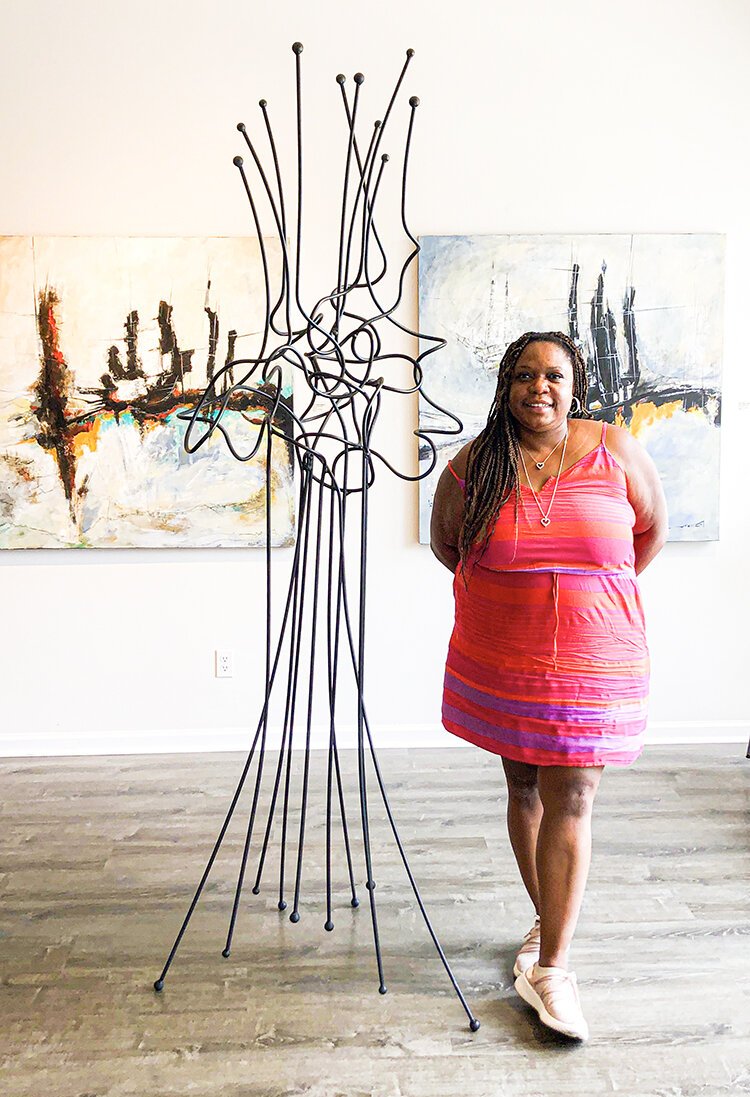
Model D: Norwest Gallery has received extensive support from its community over the last several months, raising nearly $20,000 since it closed in March. How did that happen?
AH: I’m going to tell you some personal stuff. My mother got sick and died from COVID. She got sick around the 3rd of April. And I got sick too, while I was trying to take care of her. She was at a really nice group home in Farmington, and I was going back and forth checking on her — I still live in the house that we grew up in. They did a lockdown where she was, but we just don’t know how she got it.
After she went into the hospital, I started to get symptoms. So I was worried about her, and worried about myself, and I couldn’t do anything with the gallery. I couldn’t make any money at all. I felt helpless. I had a couple friends, they knew what was going on, and they said, we’re gonna take care of it. Let’s get this campaign together and do a fundraiser. And people just came and helped out.
At one point [beforehand] I was doing everything, you know. I’m curating shows. I’m hanging art. I’m doing social media, sending out invitations, paying the bills. I’m a one-woman-show when it comes to that, but then, I felt really blessed to have great friends that stepped in and helped.
COVID did a lot of things. It changed my view, and made me feel like the community really cares, you know, like they appreciate what we’ve been doing here. It was sad to lose my mom. I had just lost my dad in September. So having them both gone was a lot, really difficult. But it’s been a time where I realize the community supports this space, and this space is for the community. I knew that anyway — that was the goal — but now I’ve really felt the support.
Model D: I read that Norwest Gallery was also one of 10 main street businesses selected to share a $50,000 matching grant from the Michigan Economic Development Corporation (MEDC) through the Grandmont Rosedale Development Corporation. Do you think you’ve found the right home for NorWest through thick and thin?
AH: Yes, the grant. That’s another thing, GRDC has been very supportive, they’ve been really good landlords. I had to tell them, “I can’t pay anything because of what’s going on.” They were very supportive in allowing me not to pay rent that month. That was awesome. Our fundraising is still going, and because of all this support, we’re able to pay our rent until the end of the year. We’re able to pay all our bills. So now we can focus on art. We can focus on creating a platform for artists. And now we can expand to more and more people.
I wanted to be here [Grandmont Rosedale] because I grew up here, just across Southfield, over on St. Mary’s. I went to Open School and was in this neighborhood all the time. Across the street [she points to a shuttered diner on the south side of Grand River] was our high school hang out ’til they closed it down. Down there used to be the NorWest Theater, which is where I got this name. That theater was always lit, it was always party time. I saw “Colors” and “Purple Rain;” I remember sitting on my grandma’s lap watching “E.T.” We had all these neighborhood theaters we could go to and we didn’t have to drive to the suburbs to see a movie. There was always some type of entertainment in this neighborhood.
So I thought about that when I opened this gallery, that this would be a kind of ode to that. A lot of art spaces aren’t welcoming spaces. It’s such a prestigious, bougie industry that you can feel like you don’t belong. I want people to experience high-end, fabulous art, to come in and feel like they’re supposed to be there. That’s why I opened up this space. It wasn’t really because it was always my dream. I opened it because somebody needed to be available for the next generation so they can have a space for the community. I want people to feel loved when they come in here.
Model D: Where do your art enthusiasts come from, and what else happens in this gallery?
AH: Everything. We’ve had virtual reality art, we’ve done a fashion show, we’ve had independent film screenings. When we had the exhibit “Hairarchy,” we played the short animation film that won an Oscar “Hair Love,” on repeat and we had kids in here. We had a daddy-daughter hair competition. Oh my gosh, it was adorable, daddys trying their hardest to do their daughters’ hair.
People from the community come in, people come from all over. I’m always asking, “How did you hear about us?” They say they saw us on a website, or we get people that come in from out of state, you know, and they might see it in a newspaper or something. We’ve gotten a lot of traction in here. I’m proud to say that people will travel to see our shows.
Model D: At a time when people are more intentional to support local Black-owned businesses, tell me about your experience as a Black female entrepreneur.
AH: I think what’s been challenging about being a Black woman business owner is just that people underestimate your ability to do the work. When you go into these spaces and they make you feel like you don’t belong there, I’ve gotten that feeling. That feeling is also what drives me to do it, you know. Like, if you’re not gonna accept me, then I’m gonna create my own table, do my own thing, and then I can accept whoever the hell I want. Now I have the platform.
I had more drama in my photography world as a Black woman that was detrimental to my career. There’s always going to be pushback in some kind of way but I’m not going to allow it to stop me in whatever I do. When I mentor kids I tell them, “Don’t let others dictate how you feel about your work. You go and do it, and see how the world receives you.”
I feel like I’ve been able to grow through these challenges. And now, I can just ignore the noise if there’s any. I just keep pushing forward. I do still want to have a space downtown for visibility purposes. And it might be just a small space, like maybe 200, 400 square feet. I don’t know what type of energy I’ll get down there, but I think I’d be well accepted. My dad always had a shop downtown. Before he passed away he said, “I love this place. I’m so proud of you. But you need a space downtown.” He always had a store in a major area that got a lot of traction. But [Grandmont Rosedale] would always be our home space.
Model D: You and your artists have been connecting with folks on social media throughout the pandemic to share art and messages of “Love and Light.” Why do you think we need to be infused with art at a time like this?
AH: There’s a saying, art for art’s sake is a waste of time. We need to be able to change people’s minds with art. We need to be able to speak through it. We’re always going to have something here that reflects that.
We had a lot of videos dedicated to people who had COVID. I think that’s something we can keep going on with. We’ve had lots of things that say thank you to essential workers, but people who are actually going through COVID need that energy, that love and light. They need to know they’re not just some number on the news.
We need art now because art helps you feel. It takes you out of your element to a different place. That’s what we need, you know. I was thinking, as I was driving home and back and forth, we can get in this mundane life where you just are, where nothing seems new anymore. And that’s the beauty of art. It continues to evolve, it’s ever-changing. Art is therapeutic.
Norwest Gallery resumes its regular hours on Aug. 5 and is open Wednesday through Friday by appointment only. For more information, go to NorWest Gallery’s Facebook page.
BIG and ABSTRACT features “what the artist’s soul yearns” from 12 artists in the Detroit area.
Also check out NorWest Gallery in the citywide exhibition, Art Mile, at artmiledetroit.com. Hamilton’s own “juicy textures” are featured here, including pieces like “Six Mile” and “Fenkell for Sale.”
This interview has been edited for brevity and clarity.
